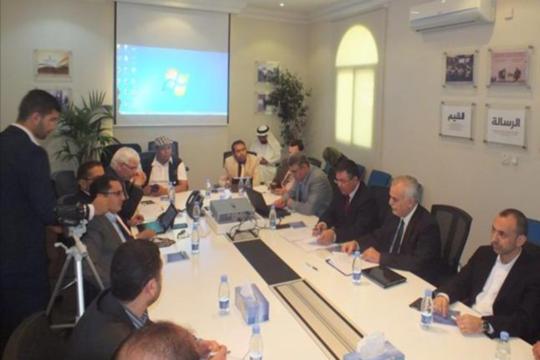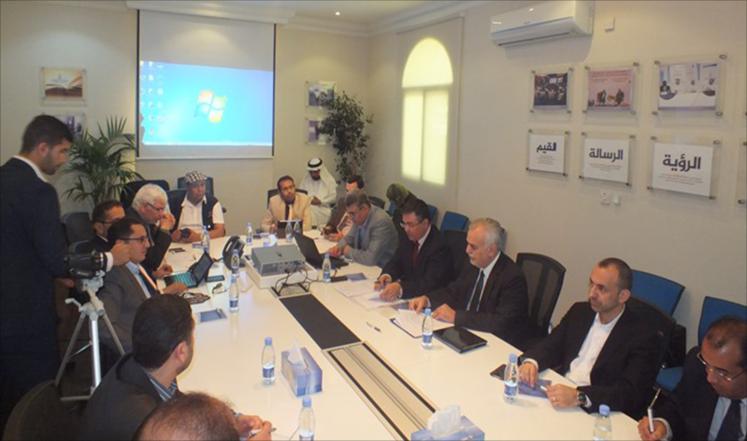
 |
| Roundtable participants discuss Iraqi elections and country's uncertain future |
Iraqi parliamentary elections will be held in less than 10 days in a unstable security environment and under what has been described as a no-longer effective democratic process. On Wednesday, April 23, 2013, Al Jazeera Centre for Studies held a closed roundtable discussion titled, “Iraqi Elections: Security Challenges and Sectarian Polarisation,” in which two guest speakers analysed the context of the country’s fourth round of parliamentary elections post-Saddam Hussein.
Former vice president of Iraq Tariq Al-Hashimi and Dr. Liqaa Maki led the discussion on factors influencing the country’s upcoming elections as well as major players in the country’s political landscape. Speakers gave their perception of the greatest challenges facing a country seemingly overcome by sectarian violence and economic instability for a number of years.
While the country is at a crossroads, there are several unavoidable facts mentioned during the roundtable. There is what looks to be a real revolution occurring in Iraq, with armed opposition fighters and government forces battling for control. Nouri Al-Maliki’s future position in the country will determine the level to which the country’s population continues to be divided by sectarian lines. There are currently three key groups, each of them with several political parties, vying for power in the parliamentary elections. The major contenders include three Sunni parties, five Shiite parties, four Kurdish parties and three parties with cross-sectarian membership.
While the elections could possibly bring some change, the roundtable revealed that the democratic process is no longer effective in the country for three key reasons: weak constitutionally-mandated institutions, foreign intervention and severe sectarian polarisation exacerbated by many candidates’ insistence on acrimonious and intolerant campaign platforms. Furthermore, the increase in armed groups has made it difficult for any political or economic progress post-Saddam and post-US withdrawal.
The roundtable is part of a series of activities by AJCS designed to increase dialogue and enrich its researchers’ background information on current events.